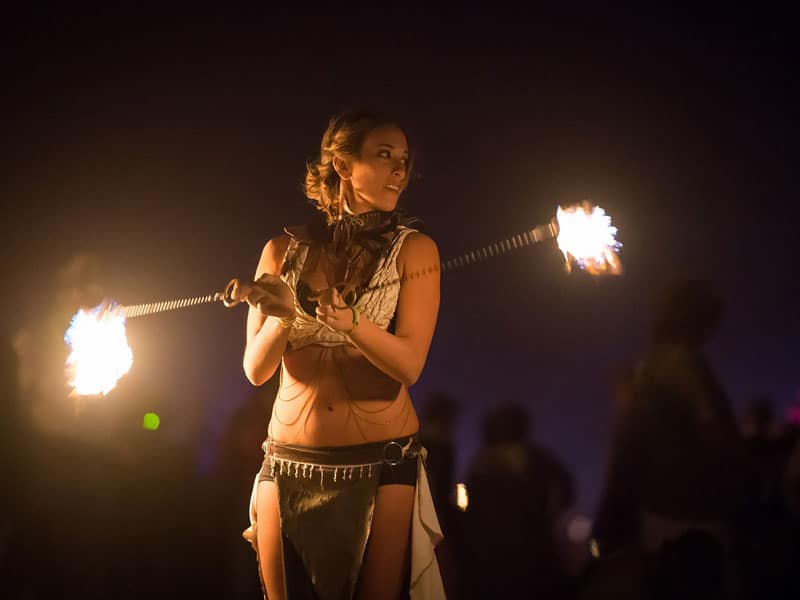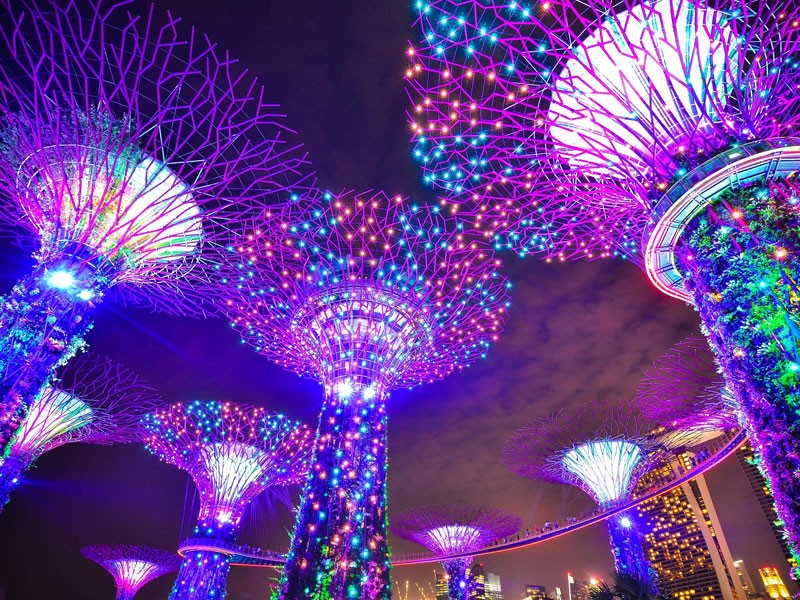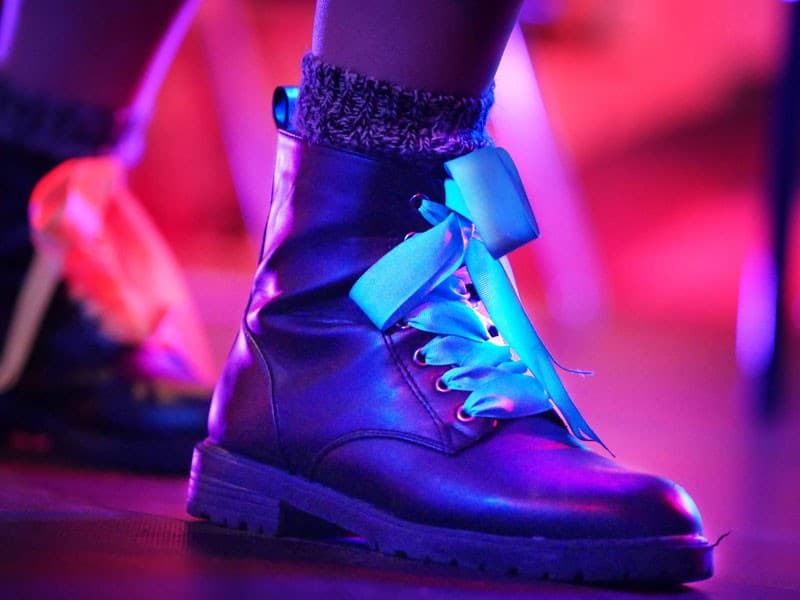Jumping in her friend’s car on a whim, Wendy Watson was on her way to Janis Joplin, mudslides, and a weekend that would be labeled the champion of music festivals today for generations to come.
Spending $18 on a ticket for the three-day concert, the Woodstock Music & Art Fair was once-in-a-lifetime. “We wanted peace, we were sick and tired of the fighting,” Watson said. “That was what generated Woodstock.”
At least 32 million Americans go to at least one U.S. music festival every year, according to the U.S. Census Bureau.
Compared to the 400,000 attendees of the Woodstock music festival in 1969, this number has increased almost 99 percent. “Everything was so peaceful,” said Watson, a resident of Eugene, Ore. “It was all about love, peace, happiness, and especially anti-war.”
We’ve still got wars, but protests aren’t what’s driving most people to music festivals in our modern times.
Here are three ways modern music festivals have evolved since Woodstock.
The Overall Music Festival Experience
Music festivals like Burning Man, Coachella, and Lollapalooza offer VIP packages, and festival goers for those with deep pockets. Food vendors, a giant Ferris wheel, and luxurious lodging amenities both on and off-site are only a few experience enhancers that the Coachella Valley Music & Arts Festival offers, in Indio, Cal. A thorough music festival checklist is essential for navigating these modern options.
The Burning Man music festival, which is a temporary city built in the Black Rock Desert in NV, caters to people seeking the experience fit for the Queen of Sheba. Attendees have the option of taking a private helicopter or even skydiving into the event. Watson said Woodstock did not have any of the extravagant amenities that exist today, “We just wanted to socialize and party together.” She recalled the terrible storm that created the most fun part of the concert for her though: the brown, chunky mudslides and mud-fights that ensued in a little area of her own at Woodstock.
Beyond glamorous beverage tents and vegan and gluten-free food trucks, millennials include drug use in their Music Festivals Today-themed itineraries. MDMA, or the drug more commonly known as “Molly,” is the choice stimulant and hallucinogen for many festival goers. When the drug’s euphoric properties are combined with the kaleidoscope of colors used in light shows and graphics on stage, “rolling,” as taking the drug is called, is an essential part of the festival experience.
As if drugs weren’t a major part of the ‘60s counterculture and hippie movement, Watson said the reasons for taking the drugs are not the same, though. “Sure, there were drugs, pot, and booze, but it wasn’t the top priority like it is today,” she said. “People took drugs to escape the senseless war. Timothy Leary was trying to tell everyone hallucinogens were good!”
Aside from experience-enhancing drugs, some festivals are for actual electronic dance music, EDM lovers, or even grunge rock fans. Nick Brown has been to seven festivals and 15 shows in total. The Illinois Wesleyan student thinks that people are attracted to the good sounds and “vibes” at these concerts. “I think over the years I’ve gone from places like Lollapalooza, which has a lot of young kids and people who don’t necessarily love EDM, to festivals like Lost Lands, where it’s all EDM lovers and less crowded,” he said. “Lost Lands had zero medical tent visits for drug-related issues, whereas Lollapalooza has like 200 a year, for a three-day event.”
The Social Event
Gabrielle Coello, from Grosse Pointe, Mich., will not go to a festival if she does not like the performers, she said, “I don’t care about the status of the event, even if all of my friends are going.”
Coello might be an exception. Social media has played a large part in the reasoning behind going to music festivals. Millennials may be more attracted to the idea of posting on Instagram and Snapchat than the music itself. Technology changed it all.
Much like New York Fashion Week, everyone is trying to be photographed looking their best at the event.
Coello does not buy into those types of people, though. “I think if you’re with a group of friends enjoying the music you all love, you don’t even pay attention to all of the people who are just there for the atmosphere and status of it all,” the Michigan State senior said.
Brown agrees that some people attend festivals for the social and status aspect, “I think some extent of people will go just to say they went, but regardless of your reason for going, festivals are always a good time.”
The Fashion Show
Fashion is a very large part of Music Festivals Today. Celebrities and wannabes alike dress to the nines in fringe, flower crowns, and anything that will make them stand out.
“It’s more about what you wear and how different you can be when you go to the festival, rather than the music,” said Hannah Conrad, a junior at the University of Alabama. Bohemian-style fashion and hippie clothes were the most popular at music festivals a few years ago, but now, psychedelic dress has made its way in.
Body glitter, mesh crop tops, and multi-colored, stick-on gems are typical ingredients for the go-to Lollapalooza outfit. At Woodstock though, the fashion was very different, “It wasn’t important for us to try and look like we had a million bucks, we wore what we had on: bell bottoms, ripped jeans, and flannel shirts,” Watson said.
Fashion was not important to the people at Woodstock, much like it is to concert-goers today, according to Dr. Kathleen Rowold, an associate dean in the School of Art, Architecture + Design at Indiana University. “The emphasis on fashion at these music festivals is because consumerism has exploded completely out of control, and so rather than accomplishments, it’s more about appearance for many of these people.”
While this is very well true, Curtis Neurhing, a student at the University of Colorado-Boulder, does not think that fashion takes away from the overall experience. He agrees, though, that some people care more about other people being jealous that they went to the festival in the first place.
Music Festivals Today: Promoting Peace and Connection Through Music
Music festivals have evolved today into so much more than an enjoyment of music. Like Watson, most Woodstock attendees cared so much about the music, and less about their clothing, social status, and experience, which is true for Coello as well.
For these 60s hippies, as Watson calls herself, it was about enjoying the music, enjoying friends’ company, and promoting peace in a time of war. “Let’s stop it,” Watson said. “Let’s get back to promoting peace and caring about the music.”



